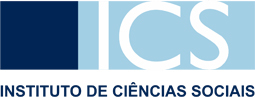The 5th International European Social Survey (ESS) Conference was held at ICS - University of Lisbon and ISCTE - University Institute of Lisbon, Portugal, from 8-10 July 2024.
Call for sessions (closed on Monday 2 October 2023)
The event will showcase research that uses data from ten rounds of the European Social Survey, either exclusively or alongside data from other sources, to map societal change and stability.
Potential session conveners are invited to submit an abstract of no more than 400 words (plus 3-5 keywords) outlining the focus of the session they plan to host.
Session organisers will be expected to encourage and review paper submissions from other academics, liaise with presenters and the conference organisers, and chair their session at the conference.
The Conference Organising Committee recommends that each session includes up to six presentations on a specific substantive or methodological theme.
Substantive topics covered by the ESS core module include ancestry; crime; democracy and politics; discrimination; human values; immigration; media; national and/or ethnic identity; religion; social exclusion; social trust and/or trust in institutions; subjective health and wellbeing; and socio-demographics.
Sessions can also focus on rotating modules fielded in the ESS such as ageism; citizenship, involvement and democracy; climate change and energy; digital social contacts in work and family life; economic morality; family, work and wellbeing; immigration; justice and fairness of life; personal and social wellbeing; social inequalities in health; the timing of life; trust in police and criminal courts; understandings and evaluations of democracy; welfare; and our COVID-19 module that included items on trust in science, vaccine hesitancy and conspiracy theories.
As the ESS is a source of methodological excellence, sessions related to survey methods are also welcome, including those that can help guide the upcoming transition to a self-completion survey by 2027. Methodological topics include data collection; data processing and archiving; data quality; interviewer effects; measurement error; mode(s) of data collection; nonresponse bias; questionnaire development; response scales; sampling and weighting; survey data harmonisation; and translation.
Sessions are encouraged to facilitate reflections on policy relevance where possible.
Should applicants be successful, their session will be advertised in an open call for papers that will be issued in December 2023, with a January 2024 deadline.
Conference timetable
- 23 August 2023: Call for sessions opens
- 2 October 2023: Call for sessions closes
- Late October 2023: Sessions selected and convenors notified
- 12 December 2023: Call for papers opens
- 31 January 2024: Call for papers closes
- March 2024: Papers selected and notified | Draft programme released
- April 2024: Registration opens (early bird rate)
- 31 May 2024: Early bird registration closes
- 1 July 2024: Registration closes
- 8-10 July 2024: Conference





